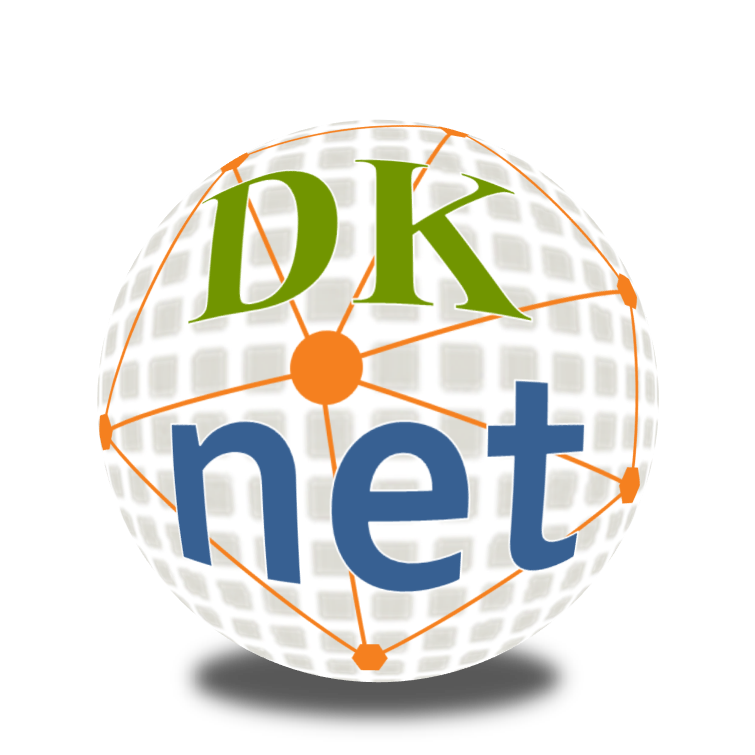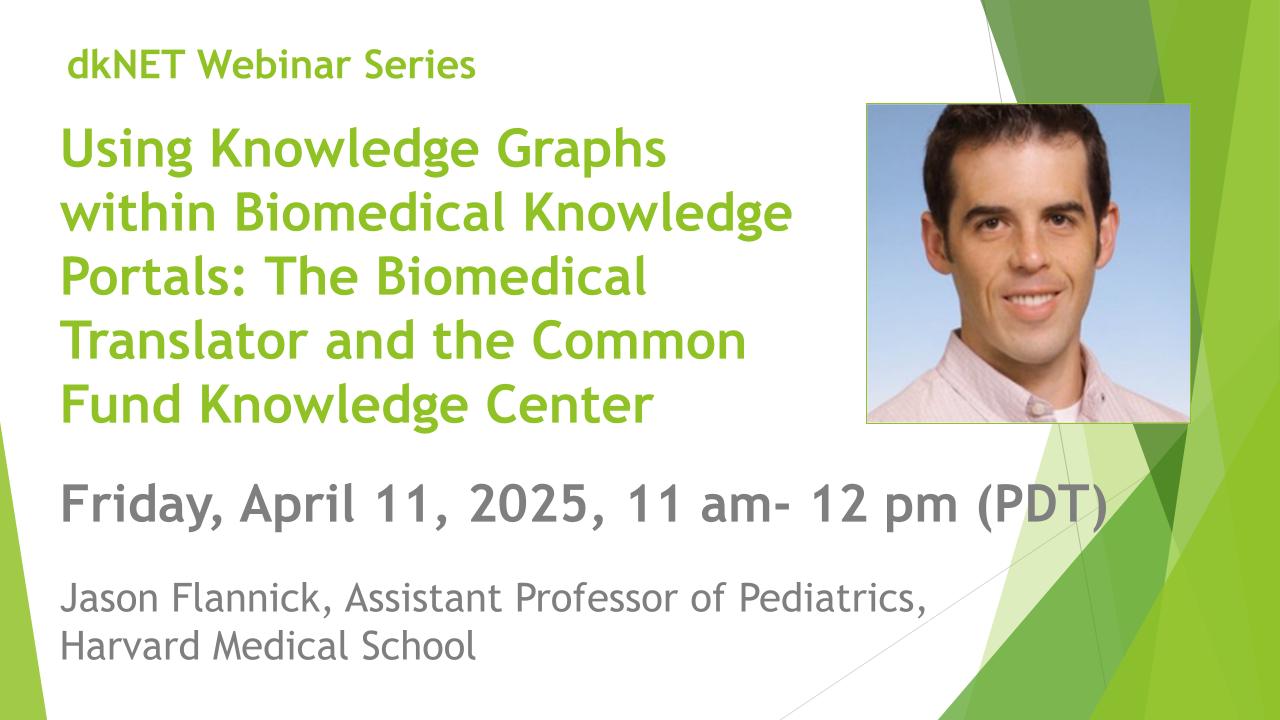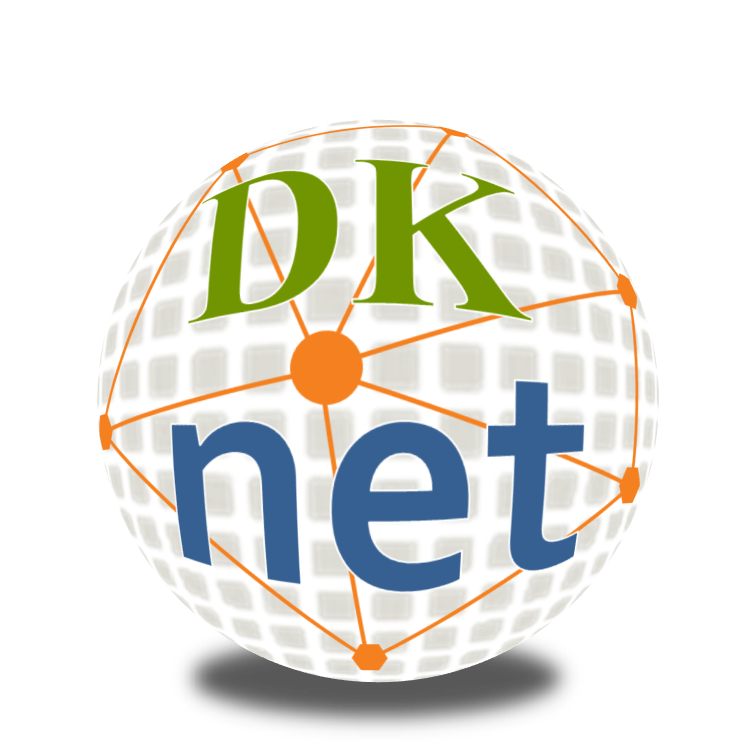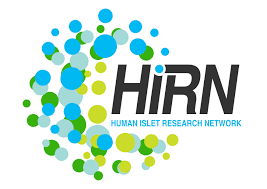Leaving Community
Are you sure you want to leave this community? Leaving the community will revoke any permissions you have been granted in this community.
dkNET community events and announcements in March, 2021
Dear dkNET Community,
dkNET provides updates on activities of interest to the NIDDK-supported community. You could keep up to date on these activities through our Twitter feed @dkNET_info, through our Community Calendar, or through dkNET e-mail list. If you have an event or funding opportunities you'd like to advertise, please contact us info_at_dknet.org.
dkNET News
- dkNET Webinar Series
- Upcoming webinars: Save the date! Join dkNET's next webinars:
- Temporal Plasma Metabolome and Gut Microbiome in an Early-Childhood Study of Type 1 Diabetes, presented by Dr. Qian Li on Friday, March 12, 2021 at 11am PST. Abstract and dial-in information: https://dknet.org/about/blog/2228
- A Novel Multi-Omics Data Integration System for Phenotype Prediction of Diabetes, presented by Dr. Wei Zhang on Friday, April 9, 2021 at 11am PST. More information: https://dknet.org/about/webinar
- The slides and recordings are now available to view:
- 2021 dkNET Summer of Data Student Internship Program To support researchers with the use of on-line resources, the 6-week dkNET Summer of Data Student Internship program provides students an opportunity to utilize the dkNET tools and resources in a research project and to provide feedback on their experience to the dkNET team. Students will learn best practices to enhance rigor and reproducibility and learn the basics of good data management by following the FAIR (Findable, Accessible, Interoperable, Reusable) data principles. dkNET will award a $1,000 scholarship to a limited number of high school, undergraduate or graduate (Masters or PhD) students who are working in a research lab during summer 2021. Awards will be determined by a competitive selection process. Application due date: Apr. 9, 2021.
- RRIDs for nPOD Biosamples are released! The RRID team has been collaborating with the Network for Pancreatic Organ donors with Diabetes(nPOD) working on identifying biosamples. nPOD launched RRIDs for all nPOD biosamples at their annual meeting in February! The RRIDs are based on the public, non-personally identifiable information submitted to NCBI/EBI biosamples databases. Now researchers can find RRIDs for nPOD biosamples and know who else published data from the same donors! Learn more: https://dknet.org/about/blog/2226
Events in March, 2021
Mar. 01, 2021
Insulin 100 Symposium Abstract Deadline: University of Toronto’s Insulin 100 Scientific Symposium Celebration
The Scientific Symposium will provide comprehensive updates on the latest advances in diabetes treatment and management through a series of online educational sessions and live, online, panel discussions with the experts. Educational sessions will include the latest information on the management of diabetes and its complications, practical tips and proven strategies for improving patient care, and translation of the latest diabetes research into clinical practice. These sessions will be recorded for posterity and retained on the Scientific Symposium website as an educational repository for long term access referencing.
More Information: https://insulin100.com/abstract-submission/
Mar. 01-05, 2021
9th International Singapore Lipid Symposium
The Singapore Lipid Symposium has rapidly evolved into a key event to keep up to date for novel developments in lipidomics in Asia Pacific. Based on past experience, we are expecting participation of approximately 150-200 from around the world and representation from a wide range of areas in the life sciences across academia and industry.
More Information: https://sling.sg/news-events/isls/
Mar. 02, 2021
HIRN Webinar: Designing Tools and Materials to Create a Benchtop Window into the Islet-immune Interface
The Human Islet Research Enhancement Center (HIREC) will be hosting a webinar to highlight advancements of the Consortium of Human Islet Biomimetics (CHIB). The goal of this public webinar is to share HIRN advancements with the scientific community.
Introductory Presentations on:
Introduction to HIRN Consortium on Human Islet Biomimetics (CHIB) by Dr. Cherie Stabler, University of Florida
Single Cell Gene Expression Analysis, TCR Sequencing and Avatar T Cells by Dr. Luc Teyton, Scripps Research
Sensing Pancreatic Islet Secretions within Microfluidic Devices by Dr. Daniel Steyer, Florida State University
Vascular Networks in Microphysiological Systems (MPS) by Dr. Dan Huh, University of Pennsylvania
Gene Editing of Primary Human Cells and Human IPSCs by Leanna Peters, University of Florida
Register at link below.
More Information: https://dknet.org/about/dknetnews/2203
Mar. 04, 2021
NIDDK Workshop: The Gut Brain Axis as a Critical Element in the Development of Parkinson's Disease
Each year approximately 60,000 Americans are diagnosed with Parkinson's disease and by 2030, nearly one million people in the U.S. will be living with the disease. Parkinson's disease symptoms are not limited to motor dysfunction and patients who develop Parkinson's disease often have a history of gastrointestinal (GI) symptoms, which may occur decades before the appearance of motor symptoms. There is a need for research on the neuropathological events in the GI tract that may provide insights into the disease origins and mechanisms associated with progressive neurodegeneration with the goal of developing innovative early-phase diagnostic tools or preventative therapies.
More Information: https://www.niddk.nih.gov/news/meetings-workshops/2021/gut-brain-axis-as-a-critical-element-in-the-development-of-parkinsons-disease
Mar. 04, 2021
Metabolomics Consortium Collaborative Webinar Series: Understanding the chemical biology of the gut-liver axis with metabolomics.
This webinar series highlights the collaborative projects of metabolomics research investigators and their biomedical collaborators with the intention of engaging scientists within other NIH institutes, as well as presenting case studies to the consortium of successful metabolomics partnerships.
More information: https://ufl.zoom.us/webinar/register/WN_cQ7m6cWDQ2yOjlUTTd04sA
Mar. 09, 2021
LIPID MAPS Webinar: Urine Steroid Metabolomics as a Discovery Tool and Diagnostic Testing Approach in Adrenal Tumours
Presented by: Professor Wiebke Arlt
More Information: https://www.lipidmaps.org/resources/tutorials/webinars/webinar/?code=lm_s2_wiebke_arlt
Mar. 10, 2021
Diabetes Research Centers Virtual Seminar Series : Insulin Secretion and Peripheral Insulin Action - Orchestrating Better Harmony
The Virtual Diabetes Research Center Seminar Series is an effort to connect investigators and trainees during this time of great change and isolation related to the COVID crisis. This seminar series is organized by the NIDDK-funded Diabetes Research Centers at the Albert Einstein College of Medicine, Columbia University, Joslin Diabetes Center, Indiana University, Stanford University, the University of Alabama at Birmingham, UCSD/UCLA, UCSF, the University of Chicago, the University of Colorado, the University of Michigan, the University of Washington, Vanderbilt University, Washington University, Yale University, and in North Carolina (logos and connections below). This seminar series features an outstanding scientist discussing the latest in diabetes, obesity, or metabolic research.
Presenter: Debbie C. Thurmond, PhD
More Information: https://www.vumc.org/diabetescenter/virtual-seminar-series
Mar. 11, 2021
UNC NORC P&F Symposium: “From Pilot Data to Federal Funding: Lessons from P&F Program Award Winners”
The UNC NORC Pilot and Feasibility (P&F) Program presents a virtual symposium, “From Pilot Data to Federal Funding: Lessons from Pilot and Feasibility Program Award Winners,” on Thursday, March 11, 2021 from 2:00 – 4:00 PM ET. The symposium will feature keynote speaker and P&F awardee Dr. Penny Gordon-Larsen and presentations from P&F award winners Dr. Kyle S. Burger, Dr. Rachel W. Goode, Dr. Abbie Smith-Ryan, and Dr. Maya Styner. Speakers will discuss their current research, their experiences as a P&F awardee, and their transition from gathering pilot data to securing federal funding.
More Information: https://norccentral.org/2020/11/unc-norc-pf-symposium-from-pilot-data-to-federal-funding-lessons-from-pf-program-award-winners/
Mar. 12, 2021
dkNET Webinar: Temporal Plasma Metabolome And Gut Microbiome In An Early-Childhood Study Of Type 1 Diabetes
The Environmental Determinants of Diabetes in the Young (TEDDY) study enrolled newborns by screening of HLA-DR-DQ haplogenotypes, and then collected plasma and stool samples for metabolomics and metagenomics analyses under a nested case-control design. Our recent research reported multiple metabolites at various time points heralding the onset of distinct initial islet autoantibodies. An unsupervised clustering analysis of temporal lipidome identified a subgroup of TEDDY children developing autoimmunity at an earlier age compared to the others, similar to the age of population-wide early incidence. In order to identify operational taxonomic units that signal the early-age seroconversion to autoimmunity adjusting for the known metabolic and genetic risk factors, we developed a three-part mixed effect model that integrates the temporal microbiota, risk of disease onset up to a fixed time point, metabolites and other time-invariant risk factors. Application to a subgroup of TEDDY children showed that at their 4-9 months of age, the temporal composition and presence of multiple genera and species were associated with the risk of seroconversion by 18 months of age, adjusting for the reported metabolic risk factors and HLA haplogenotype DR3&4. This method also confirmed that these metabolites and HLA DR3&4 were associated with the risk of early seroconversion to islet autoimmunity. Presenter: Qian Li, Ph.D. Assistant Professor, Health Informatics Institute, University of South Florida.
More Information: https://dknet.org/about/blog/2228
Mar. 15, 2021
ADA 81st Scientific Sessions Late-Breaking Abstract Due Date
The late breaking abstract program of the virtual 81st Scientific Sessions allows for inclusion of later submissions of newly completed research and clinical trials. The abstract should describe a noteworthy and timely research advance that has not been previously published or submitted. Abstract submission due 2:00PM PST - 5:00PM EST.
More Information: https://professional.diabetes.org/scientific-sessions
Mar. 20-23, 2021
Endo 2021
ENDO is the place where leading experts, researchers, and the most respected clinicians in the field come together to share the latest findings in hormone science and discuss breakthroughs in clinical care. ENDO provides an excellent opportunity to connect with thousands of colleagues from around the world. With a long-standing reputation for high-quality clinical, basic, and translational programming, ENDO provides a unique opportunity for you to gain further knowledge in your area of specialty as well as in other related areas. The program features outstanding plenaries, enhanced Basic Science Pathways, the latest clinical practice guidelines, exposure to new techniques and methodology, and so much more. More information: https://www.endocrine.org/endo2021
Mar. 22-26, 2021
Keystone Symposia: Lipidomics of Health and Disease
Lipid metabolism provides the building blocks for cell growth and replication, signaling molecules that initiate and propagate signals inside and outside of cells, and fuel for cell function and division. The role of these molecular species in human disease has become more apparent with advancements in ability to detect and accurately quantify them. This meeting will integrate information generated through lipidomics studies. Specific areas of focus will include using genetic and proteomic data to identify changes in particular molecular species, the importance of changes in lipid metabolism and signaling and the regulatory enzymes for neurodegeneration, metabolic disorders, cancer and inflammation and immune responses. Featured talks will extend beyond methodologies to integrate the current biological and clinical importance of lipids with lipidomics approaches. This will allow us to focus upon the mechanistic importance of lipids in neurodegeneration and other neurological disorders, cancer, inflammation and metabolic disorders. This meeting will include a workshop, led by members of LIPID MAPS, on lipidomics methodologies, data handling and storage to further emphasize the biological and medical importance of lipid diversity.
More Information: https://virtual.keystonesymposia.org/ks/live/676/page/5691/?_ga=2.63211302.824920965.1614189042-781459386.1614189042
Funding opportunities information and deadlines in March, 2021
Mar. 02, 2021
NIDDK Funding Opportunity Application Due Date: NIDDK Central Repositories Non-renewable Sample Access (X01 Clinical Trial Not Allowed)
The NIDDK Central Repositories house valuable biological samples and data from numerous major clinical studies. This initiative allows investigators to apply for access to non-renewable samples from one or more of these studies. Information about the samples available can be found at https://repository.niddk.nih.gov. Applicants must provide a report from the NIDDK Central Repositories documenting sample availability. Letter of Intent due 30 days prior to application due date.
More Information: https://grants.nih.gov/grants/guide/pa-files/PAR-19-319.html
Mar. 03, 2021
NIDDK Funding Opportunity Application Due Date: Toward ElucidAting MechanismS of HIV Pathogenesis within the Mission of the NIDDK (Pathogenesis TEAMS) (R01 Clinical Trial Optional)
The purpose of this Funding Opportunity Announcement (FOA) is to support multidisciplinary research teams with complementary expertise in HIV and pathobiology, pathophysiology, and/or metabolism in organs, tissues, and/or biological systems of specific interest to the National Institute of Diabetes and Digestive and Kidney Diseases (NIDDK). These teams will comprehensively interrogate fundamental mechanisms underlying HIV-associated comorbidities, coinfections, and complications relevant to the mission of the NIDDK and advance progress toward alleviating them.
More Information: https://grants.nih.gov/grants/guide/rfa-files/rfa-dk-20-022.html
Mar. 03, 2021
NIDDK Funding Opportunity Application Due Date: Understanding the Cellular and Molecular Mechanisms of Gastroparesis in Adults and Children (R01 Clinical Trial Not Allowed)
Since its establishment in 2006, the Gastroparesis Clinical Research Consortium (GpCRC), a multi-center coalition created and funded by the National Institute of Diabetes and Digestive and Kidney Diseases (NIDDK) has made major advances to our understanding of the pathophysiology of Gastroparesis (Gp).
Through the establishment of the largest gastroparesis tissue repository in the United States, combined with detailed phenotypic data, the GpCRC is ideally suited to accelerate insights into the underlying cellular and molecular pathophysiology of the gastroparesis with the ultimate goal of developing therapeutic target(s).
This RFA invites investigators from several disciplines, including basic and translational research in areas of neurosciences, immunology, microbiology and physiology, to contribute new insights into the cellular and molecular mechanisms of Gastroparesis.
More Information: https://grants.nih.gov/grants/guide/rfa-files/rfa-dk-20-030.html
Mar. 13, 2021
Diabetes Center Funding Opportunity Application Due Date: Type 1 Diabetes in Acute Pancreatitis Consortium - Data Coordinating Center (T1DAPC-DCC) (U01 Clinical Trial Optional)
This Funding Opportunity Announcement (FOA) invites U01 applications for the establishment of a clinical consortium, the Type 1 Diabetes in Acute Pancreatitis Consortium (T1DAPC), composed of one Data Coordinating Center (DCC) and up to 10 Clinical Centers (CC), to conduct studies on Type 1 diabetes mellitus (T1D) that occurs after or as a consequence of one or more episodes of acute pancreatitis. Applications for the Clinical Centers (CC) are submitted in response to a separate FOA: RFA-DK-19-022 : Type 1 Diabetes in Acute Pancreatitis Consortium Clinical Centers (T1DAPC-CC) (U01 Clinical Trial Optional). The applicant for the Data Coordinating Center (DCC) must have experience serving as the DCC for studies on complex, clinical conditions, like the occurrence of diabetes mellitus (DM) after or as a consequence of one or more episodes of acute pancreatitis. The Consortium will form multi-disciplinary teams composed of members from the CCs and the DCC to undertake a prospective longitudinal observational study of the occurrence of diabetes that occurs during an acute pancreatitis episode or subsequently, with an emphasis on type 1 diabetes (T1D). The study will be designed to gain insight into the incidence, clinical evolution, etiology, type and pathophysiology of the T1D and other forms of diabetes after acute pancreatitis. The Consortia will also undertake studies on the identification of immune and genetic risk factors and biomarkers which predict the development of T1D in a racially, ethnically, and geographically diverse population of subjects who have recovered from one or more episodes of acute pancreatitis due to various identifiable etiologies. The DCC will provide overall project coordination, administration, quality control, data management and biostatistical support.
More Information: https://grants.nih.gov/grants/guide/rfa-files/RFA-DK-19-023.html
Mar. 15, 2021
NIH Funding Opportunity Application Due Date: Understanding and Reducing Cardiovascular Disease in Type 1 Diabetes Mellitus (R01 Clinical Trial Optional)
This funding opportunity is intended to support research that enhances the understanding of the pathophysiology and epidemiology of cardiovascular disease among individuals with Type 1 Diabetes Mellitus (T1DM) and advances the development of interventions to reduce CVD risk among these individuals. The overall goal is to develop evidence-based guidelines to prevent or reduce CVD complications of T1DM across the lifespan. This funding opportunity will support epidemiologic studies to refine risk assessment, mechanistic trials to enhance understanding of the pathophysiology of CVD in T1DM, and small clinical trials that could inform the future development of larger trials focused on preventing or reducing the CVD complications of T1DM. Letter of Intent due 30 days prior to the application due date.
More Information: https://grants.nih.gov/grants/guide/rfa-files/rfa-hl-21-014.html
Mar. 18, 2021
NIDDK Funding Opportunity Application Due Date: Exploratory Centers for Interdisciplinary Research in Benign Urology (P20 Clinical Trial Optional)
The purpose of this Funding Opportunity Announcement (FOA) is to seek applications for Exploratory Centers for Interdisciplinary Research in Benign Urology (P20). A major goal of this program is to build interdisciplinary research teams. The program seeks innovative, high-risk–high-reward Research Projects that utilize integrative approaches to address questions relevant to benign genitourinary diseases or disorders bringing together investigators with complementary expertise. Studies involving human subjects or tissues and small, innovative, pilot and feasibility clinical studies are encouraged. The following expertise must be included in the proposed Research Project: 1) researchers new to the investigation of benign genitourinary diseases or disorders and 2) clinical urology expertise. Additional expertise may also be included, as needed. In addition to the scientific Research Project, each Exploratory Center must include an Administrative Core with an Educational Enrichment Program. As part of the NIDDK's efforts to expand and enhance benign urology research and the base of urologic researchers, the Exploratory Centers Program will work in partnership with the George M. O'Brien Urology Cooperative Research Centers Program (U54), the Urology Centers Program Interactions Core (U24), and the Multidisciplinary K12 Urologic Research (KURe and UroEpi) Career Development Programs.
More Information: https://grants.nih.gov/grants/guide/rfa-files/rfa-dk-20-033.html
Mar. 22, 2021
NIDDK Funding Opportunity Letter of Intent Due: Biomarkers for Diabetic Foot Ulcers through the Diabetic Foot Consortium (R61/R33 Clinical Trial Not Allowed)
The purpose of this Funding Opportunity Announcement is to promote the development of prognostic, monitoring, and diagnostic biomarkers for diabetic foot ulcers that can be used in clinical trials and patient care. This initiative will support early analytical and clinical validation of biomarkers through a phased award to encourage innovative research. The initiative will leverage the resources of the Diabetic Foot Consortium to facilitate the access to well-characterized patients and high-quality human samples. The goal of this initiative is to deliver candidate biomarkers that are ready for definitive analytical and clinical validation studies through the Diabetic Foot Consortium.
More Information: https://grants.nih.gov/grants/guide/rfa-files/rfa-dk-21-001.html
Mar. 22, 2021
NIH Common Fund Funding Opportunity Application Due Date: Cellular Senescence Network: Consortium Organization and Data Coordinating Center (U24 Clinical Trial Not Allowed)
This funding opportunity announcement (FOA) invites applications for the Consortium Organization and Data Coordinating Center (CODCC) of the Cellular Senescence Network (SenNet) consortium. The goal of SenNet is to identify and functionally characterize the heterogeneity of senescent cells across multiple tissues in human health, and lifespan at single-cell resolution. The CODCC will serve as the organizational hub for SenNet collecting, storing, curating, and disseminating all data, metadata, analysis and visualization tools, computational models, and aggregate data across the Network into a searchable Atlas of Cellular Senescence; ensure the utility of the database; and promote collaboration through Network engagement with the research community.
More Information: https://grants.nih.gov/grants/guide/rfa-files/RFA-RM-21-010.html
Mar. 22, 2021
NIH Common Fund Funding Opportunity Application Due Date: Cellular Senescence Network: Technology Development and Application (UG3/UH3 Clinical Trial Not Allowed)
The purpose of this Funding Opportunity Announcement is to solicit novel analytics and technologies to identify senescent cells in human tissues This FOA supports the accelerated proof-of-principle demonstration and validation of promising tools, techniques and methods that can be integrated, scaled and applied to multiple human tissues. The initial two-year UG3 phase will support the development and demonstration of feasibility of these emerging technologies in the identification and mapping of senescent cells in mammalian tissues. The subsequent UH3 phase is to support initial validation in human tissues, optimization and scale-up, and generation of production level data. Investigators responding to this FOA must submit both UG3 and UH3 projects as part of a single application. UG3 projects that have met their quantifiable milestones will be administratively considered by NIH staff and prioritized for transition to the UH3 phase, depending on the availability of funds.
More Information: https://grants.nih.gov/grants/guide/rfa-files/RFA-RM-21-009.html
Mar. 22, 2021
NIH Common Fund Funding Opportunity Application Due Date: Cellular Senescence Network: Tissue Mapping Centers (U54 - Clinical Trial Not Allowed)
The purpose of this Funding Opportunity Announcement (FOA) is to establish state-of-the-art Tissue Mapping Centers (TMCs) to work within the Cellular Senescence Network (SenNet). The goal of the SenNet consortium is to identify and functionally characterize the heterogeneity of senescent cells across multiple tissues in human health, disease, and lifespan at single-cell resolution. Through collaborative efforts, the consortium will generate a multimodal, multidimensional Atlas of senescent cells in various human tissues; develop innovative tools and technologies to identify and characterize senescent cells; and aggregate data across the Network into a searchable Atlas of Cellular Senescence, ensure the utility of the database, and promote collaboration through Network engagement with the research community. The TMCs solicited through this RFA will generate the high-resolution, high-content, multiscale biomarkers and maps of cellular senescence across the lifespan and physiological states necessary to generate the Senescence Atlas. The SenNet is focused on healthy human tissues, and work in diseased tissue or animal models is acceptable only as long as it is used to support this overall goal. TMCs will be expected to integrate and optimize all parts of the data generation pipeline, from tissue collection and preservation through analyses at organ, tissue and single cell level using omics, imaging and other approaches, to data integration, analysis and interpretation.
More Information: https://grants.nih.gov/grants/guide/rfa-files/RFA-RM-21-008.html
Mar. 23, 2021
NIH Funding Opportunity Proposal Due Date: PASC Initiative: Clinical Science Core, Data Resource Core, and PASC Biorepository Core OTA-21-015A
The NIH is soliciting applications in support of the goals of the Post-Acute Sequelae of SARS-CoV-2Infection (PASC) Initiative and Investigator Consortium. This Research Opportunity Announcement(ROA) OTA-21-015A focuses on the Clinical Science Core, the Data Resource Core, and the PASCBiorepository Core. Applicants may apply for one, two, or all three components as described in theObjectives section.
More Information: https://dknet.org/about/dknetnews/2221
Mar. 23, 2021
NIH Funding Opportunity Proposal Due Date: PASC Initiative: SARS-CoV-2 Recovery Cohort Studies OTA-21-015B
The NIH is soliciting applications in support of the goals of the Post-Acute Sequelae of SARS-CoV-2Infection (PASC) Initiative and Investigator Consortium. This Research Opportunity Announcement (ROA)OTA-21-015B focuses on three research study areas: Clinical Recovery Cohort Studies, Autopsy CohortStudies, and EHR- and Other Real-World Data-based Studies. Applicants may apply for one, two, or all three of these components as described in this ROA.
More Information: https://dknet.org/about/dknetnews/2221
Mar. 24, 2021
NIDDK Funding Opportunity Application Due Date: HEAL Initiative: Non-addictive Analgesic Therapeutics Development [Small Molecules and Biologics] to Treat Pain (UG3/UH3 Clinical Trial Optional)
The purpose of this funding opportunity announcement (FOA) is to support preclinical optimization and development of safe, effective, and non-addictive small molecule and biologic therapeutics to treat pain. The goal of the program is to accelerate the optimization and development of promising small molecule and biologic hits/leads to Phase I clinical trials and readiness for the Early Phase Pain Investigation Clinical Network (EPPIC-Net) https://heal.nih.gov/research/clinical-research/eppic-net or other Phase II clinical studies. Applicants must have a promising biologic or small molecule hit/lead, robust biological rationale for the intended approach, and identified assays for optimization of the agent. The scope of this program includes optimization and early development activities, IND-enabling studies, development of a pharmacodynamic/target engagement biomarker, assembly and filing of an Investigational New Drug (IND) application and Phase I clinical testing. This is a milestone-driven phased cooperative agreement program involving participation of NIH program staff in the development of the project plan and monitoring of research progress.
More Information: https://grants.nih.gov/grants/guide/rfa-files/rfa-ns-21-010.html





